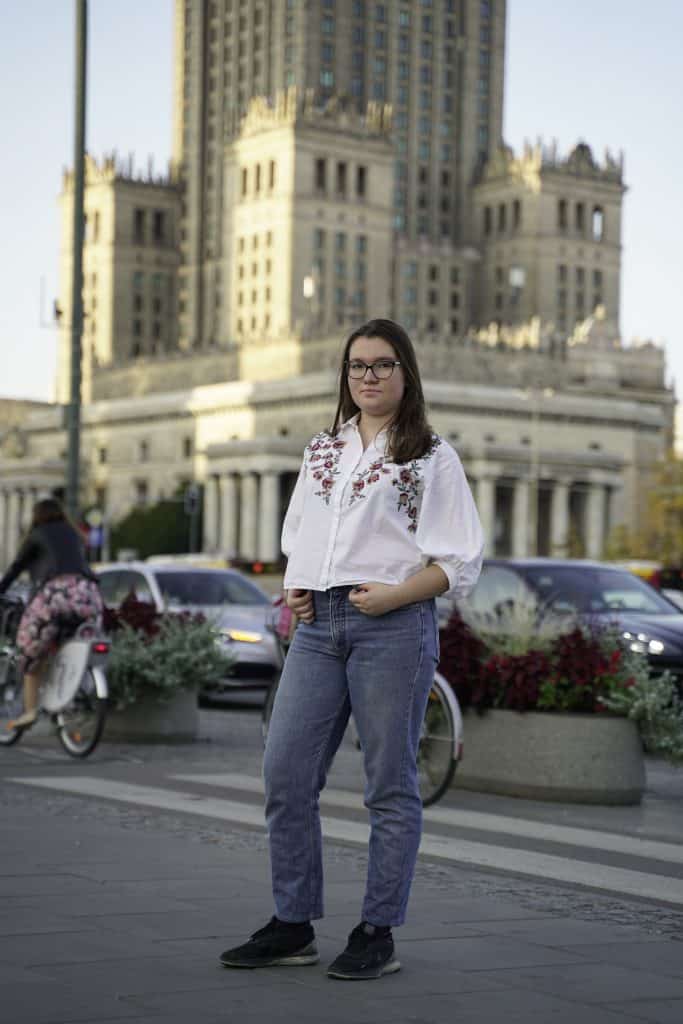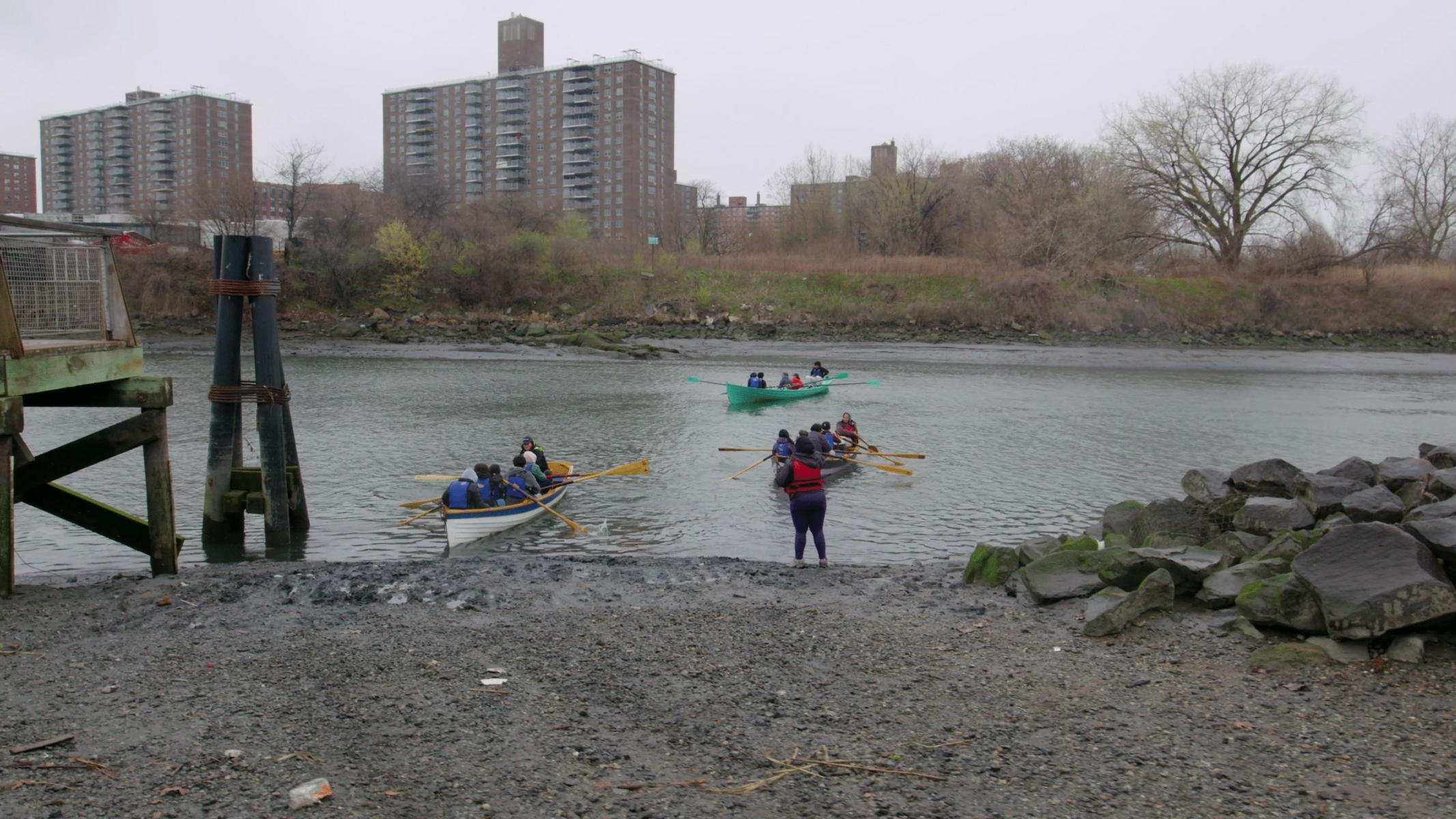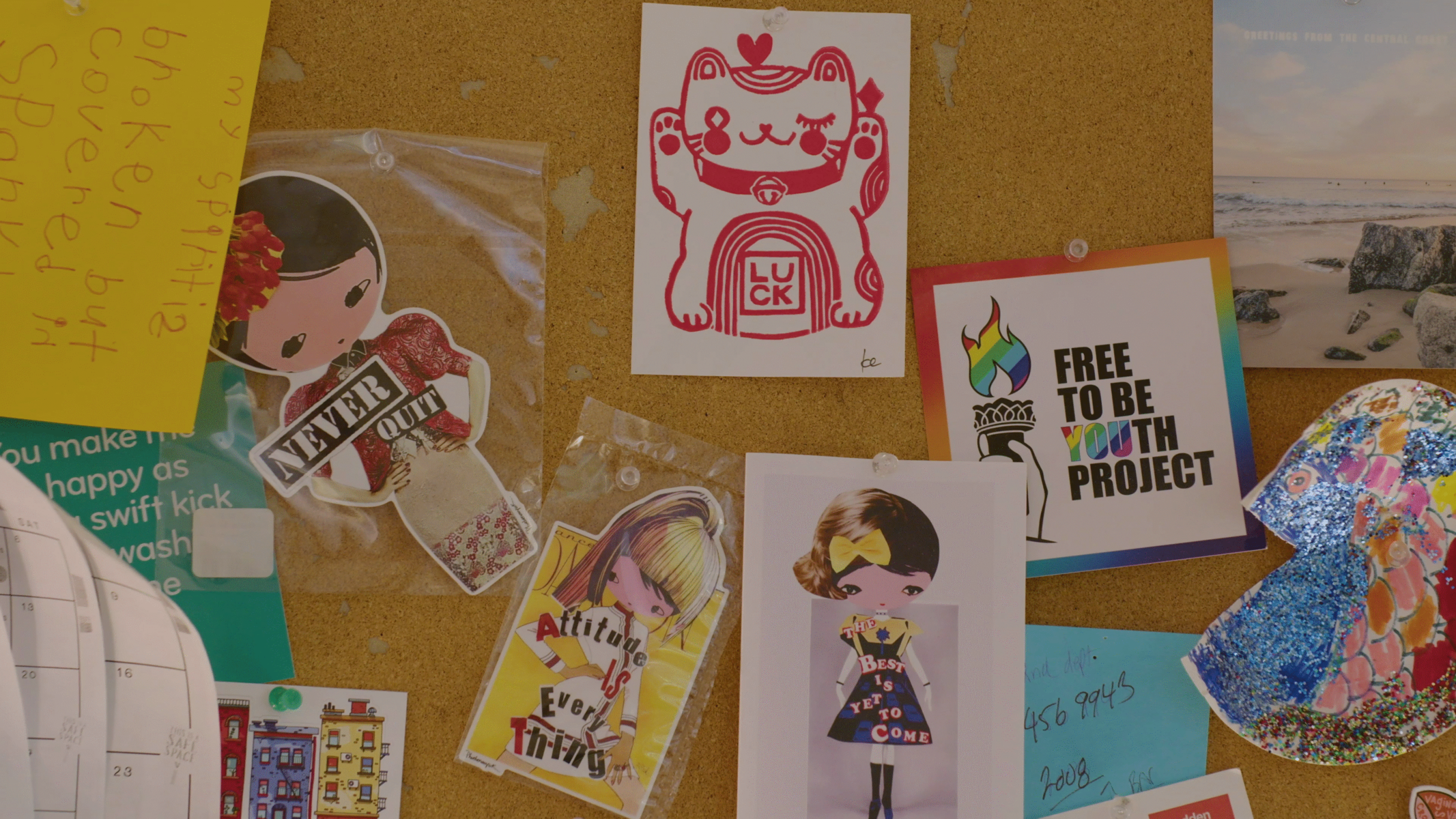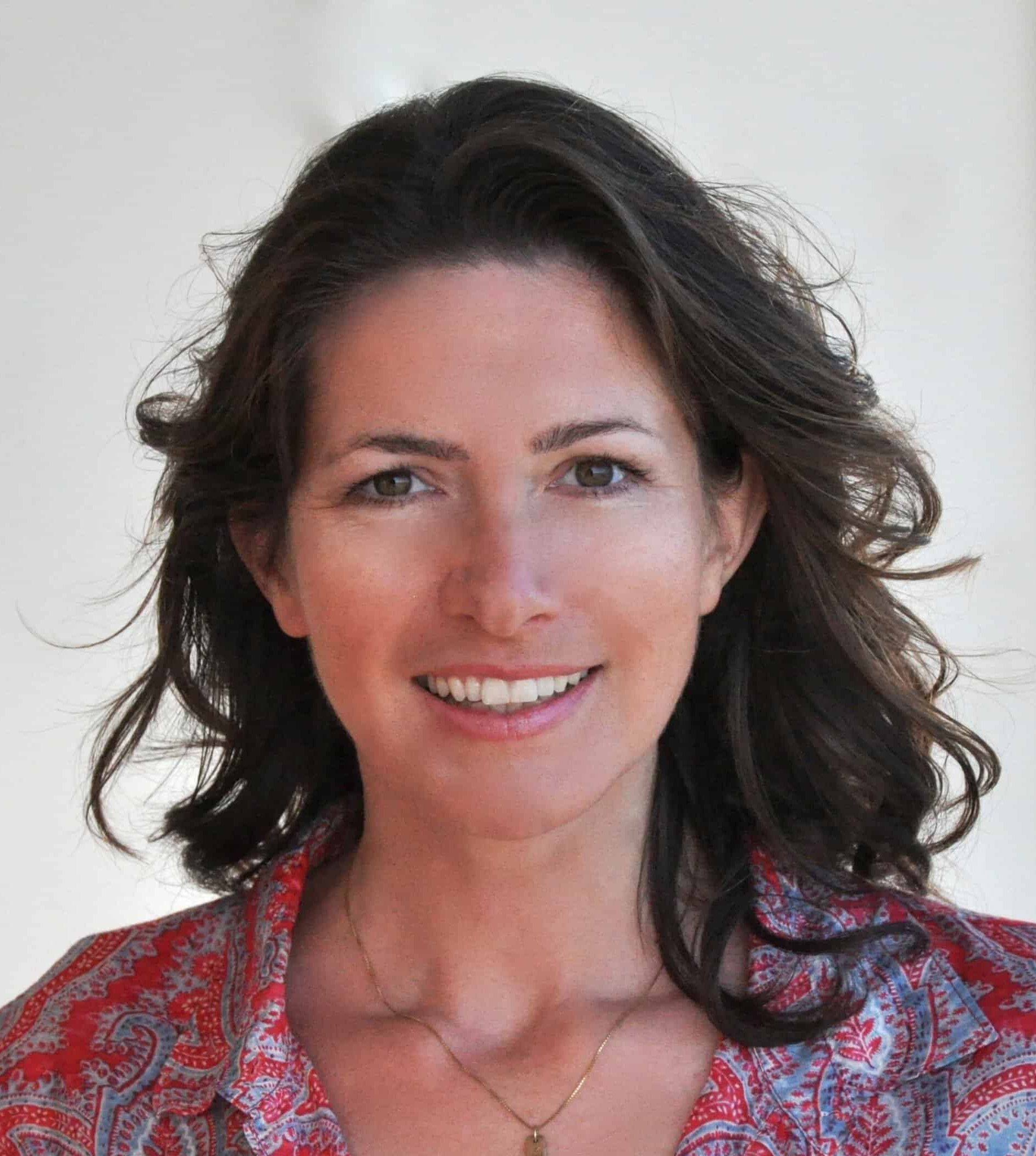When Krysia Paszko, as a 17-year-old student in Warsaw, Poland, learned at the beginning of the pandemic that domestic violence had risen to alarming levels during the lockdown, she felt the need to do something. She was already developing an interest in human rights. Plus, she says proudly, “As the leader of the Warsaw Girl Scouts, I learned to be bold and take action.”
Some research led her to a creative program in France, where people affected by domestic violence can ask their pharmacist for a “mask 19,” a code phrase to indicate that they need help without tipping off their abusers. Using the same principle, Paszko began building a fake online shop for cosmetics in April 2020 with the innocuous brand name Chamomile and Pansies (Rumianki I bratki in Polish). Under the pretense of looking for face creams, visitors can use the site to draw attention to their situation via Facebook message, text, email, or phone. Instead of an aesthetician or a customer service representative, an experienced psychologist or a lawyer who has been specially trained by the Women’s Rights Center, a non-profit in Warsaw, will inconspicuously respond.
“At first, I only told a few friends on Facebook about my idea, but the post was immediately shared so many times that it became clear how enormous the need was,” says Paszko, who recently turned 18 and has been managing the site while graduating from school.
Since the beginning of the pandemic, her team of volunteers has helped more than 500 people affected by domestic violence, mostly young women, but also a few teenagers and men. Through Paszko’s hotline, at least 20 women have been freed from potentially life-threatening situations and offered housing in women’s shelters. “During the lockdown, many women are stuck under one roof with their abuser,” Paszko says. “The pretense to search for cosmetics allows the women to speak about their situation even when the perpetrator is in the same room.”
Weighed down by negative news?
Our smart, bright, weekly newsletter is the uplift you’ve been looking for.For instance, one woman told Paszko’s team she was having issues with her face cream because it contains alcohol and causes inflammation. Hanna Kobus, a 21-year-old law student who has been participating in monitoring the hotline since its inception, took that call. “So I immediately know: Okay, this woman has a violent alcoholic at home and can’t talk openly,” Kobus says. She then gently probed for more details: How long have the “skin problems” been bothering her? Do the children need a balm, too? “Others ask for makeup to cover up bruises,” Kobus shares. “When a woman places an ‘order’ and gives us her address, that’s the signal for us to send the police.”
Why aren’t the survivors calling the police directly? “The biggest advantage is that they can text us secretly while they are under the control of the abuser,” Paszko explains. “When the abuser checks their messages or browser history, he only sees that they asked about creams.” She also remembers instances when family members called the police but they never showed up because domestic violence is often mistaken as a family affair. “As an organization, we can follow up and make sure they get help.”
Women’s advocates worldwide have raised concerns about increasing domestic violence during the pandemic. In the U.S., the National Commission on Covid-19 and Criminal Justice found that domestic violence incidents rose by about eight percent in 2020, and the Polish Women’s Rights Center has noted at least a 40 percent increase in calls since the start of the pandemic. “A popular saying in Poland is: If you don’t beat your wife, she will get sick,” says Kobus. “This is part of our culture; this is what we’re up against.”
Members of the right-wing conservative government, including Secretary of Education Przemyslaw Czarnek, have openly advocated for the corporeal punishment of children and defined women’s primary duty as giving birth. “It is incomprehensible to me that the Polish government wants to leave the so-called Istanbul Convention, the Council of Europe Convention on preventing and combating violence against women,” Paszko says.

The majority of people who reach out to Chamomile and Pansies need counseling. “We tell them, no, this is not normal. This is abuse,” Paszko says, and her volunteers forward ongoing counseling requests to experienced psychologists at the Women’s Rights Center. Some of the women who reached out at the beginning of the pandemic continue to be under WRC’s care. Neither Paszko’s initiative nor the WRC receive any government support; all the volunteers work for free, and expenses are covered through private donations. (Paszko especially appreciates that the European Union recently awarded her project with the Civil Solidarity Prize and about $12,000.)
“The number of victims reaching out come in waves that run parallel with the waves of the pandemic,” says Paszko. Her team has posted information about the site mostly on women’s pages on Facebook, where people being abused — but not their abusers — are likely to read about it. Most of those who reach out are very young, which Paszko believes is due to their familiarity with digital messaging. Her own team is also unusually young; for instance, the graphic designer is even a year younger than Paszko.
Paszko says she is grateful she has never experienced violence herself, and that she had learned some web design skills from building the Girl Scouts’ Facebook site, which prepared her to launch Chamomile and Pansies. Now that she has graduated from school, she wants to study law and dedicate herself to advancing human rights full-time. Her website has sharpened her awareness about the enormous need. “How many women are out there who don’t dare to ask for help?”
Though she hasn’t yet started her career, she already has her first job: Women’s advocates from other countries, including the U.S., Greece, and Germany, have reached out to Paszko’s team for advice on how to copy the idea.









